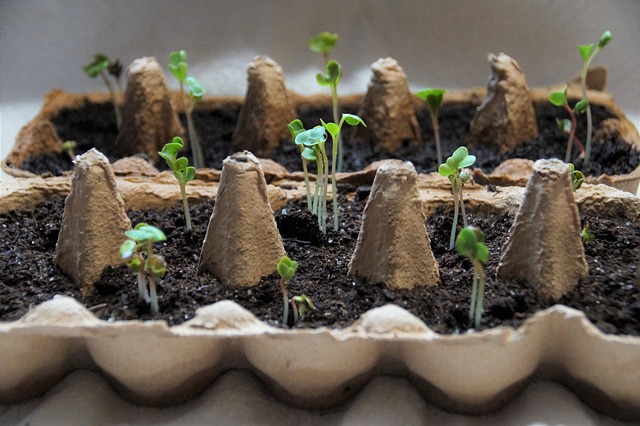Seed Germination: Common Issues and How to Fix Them
Seed germination is an essential part of growing plants, but it can be a frustrating process when things don’t go as planned. There are a number of common issues that can arise during seed germination, and fortunately, many of them are easy to fix with a few simple steps. In this article, we’ll explore some of the most common issues that gardeners face when trying to germinate seeds and offer some solutions to help you get your plants off to a healthy start.

Poor Quality Seeds
One of the most common reasons why seeds fail to germinate is poor seed quality. This can happen if the seeds were harvested too early or if they were exposed to too much moisture or heat during storage. If you suspect that poor seed quality is the issue, there’s not much you can do except start over with fresh seeds from a reputable supplier.
Incorrect Temperature
Different plant species have different temperature requirements for seed germination. Some plants require warm temperatures, while others need cooler temperatures. If your seeds aren’t germinating, it could be because the temperature is too high or too low. You can try adjusting the temperature by moving the seeds to a warmer or cooler location.
Lack of Moisture
Seeds need moisture to germinate, and if they don’t get enough, they won’t sprout. The most common cause of insufficient moisture is over-drying of the seed starting mix. Make sure the seed starting mix is moist but not soaking wet, and water the seeds regularly to keep the mix from drying out.
Too Much Moisture
While seeds need moisture to germinate, too much moisture can be just as damaging as too little. If the seed starting mix is too wet, the seeds can become waterlogged and rot before they have a chance to sprout. To avoid this, make sure the seed starting mix is well-draining and doesn’t retain too much moisture.
Poor Soil Conditions
Even if you’re using high-quality seeds, they won’t germinate if the soil conditions aren’t right. Soil that is too acidic or too alkaline can inhibit germination, as can soil that is too compacted or lacks nutrients. Make sure you’re using a high-quality potting mix that is appropriate for the plants you’re trying to grow, and consider adding amendments like perlite or vermiculite to improve drainage and aeration.
Lack of Light
Some seeds require light to germinate, while others need darkness. If you’re not sure which category your seeds fall into, refer to the seed packet for instructions. If your seeds require light and you’re not providing it, they won’t germinate. Make sure to place them in a sunny location or provide artificial light if necessary.
Pest Infestations
Pests like fungus gnats and thrips can damage seeds and prevent them from germinating. If you notice pests in your seed starting area, take steps to eliminate them using natural pest control methods like sticky traps or neem oil.
Seed Dormancy
Some seeds have a natural dormancy period where they won’t germinate until specific conditions are met. For example, some seeds require a period of cold stratification to break dormancy. If you suspect that seed dormancy is the issue, do some research on the specific requirements for the plant species you’re trying to grow and follow the recommended steps for breaking dormancy.
In conclusion, seed germination can be a finicky process, but by understanding some of the most common issues that gardeners face and how to fix them, you can increase your chances of success. By paying attention to factors like temperature, moisture, soil conditions, light, and pest infestations, you can help your seeds germinate and grow into healthy plants. Remember to always use high-quality seeds from a reputable supplier, and to follow the instructions on the seed packet for optimal germination. With a little patience and care, you can successfully germinate seeds and enjoy a bountiful garden. Happy growing!
